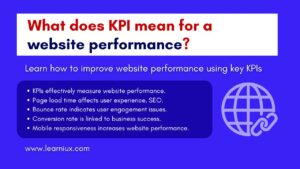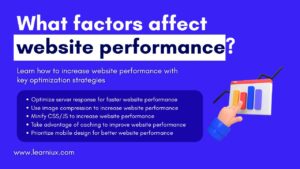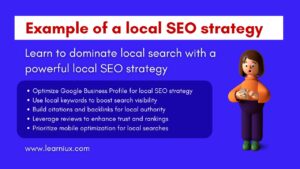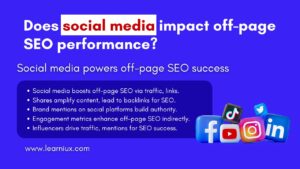SEO marketing services have become a cornerstone for businesses looking to strengthen their online presence. As the digital landscape becomes more competitive, companies are turning to search engine optimization to improve their visibility, drive traffic, and increase conversions. However, while the benefits of SEO are well-documented, the risks associated with these services are often overlooked. Understanding the risks is crucial for businesses to make informed decisions and avoid pitfalls that could damage their online reputation, waste resources, or result in search engine penalties. This article explores the potential pitfalls of using SEO marketing services and provides actionable insights on how businesses can address these challenges to achieve sustainable success.
The most significant risk of hiring SEO services is the lack of transparency in their practices. Many agencies, especially those that prioritize quick results over long-term success, may use outdated or unethical tactics to boost rankings. For example, some providers engage in keyword stuffing, where they overload web pages with repetitive keywords to manipulate search engine algorithms. Others may purchase low-quality backlinks from questionable sources to artificially inflate a website’s authority. While these strategies may yield short-term gains, they often violate search engine guidelines set by Google. The consequences can be severe, including penalties such as ranking reductions or complete deindexing from search results. Businesses that are unaware of these practices can be fined for actions they did not directly monitor. To mitigate this risk, companies should partner with SEO agencies that provide clear, detailed reporting on their strategies and tactics. Requesting regular updates and ensuring that the agency follows ethical, white hat SEO practices can avoid long-term damage. Transparency builds trust and ensures that SEO efforts are consistent with industry standards, protecting the business from unexpected pitfalls.
Another common problem is over-promising unrealistic results. The allure of quick success in SEO is strong, and some agencies capitalize on this by promising top rankings or instant traffic increases. However, SEO is a complex, long-term process that is influenced by many factors, including algorithm updates, competition, and user behavior. No agency can guarantee a top spot on search engine results pages, as these results depend on variables beyond their control. Businesses that fall for such promises often face disappointment when results don’t materialize, resulting in wasted budget and missed opportunities. In some cases, agencies may use misleading metrics, such as inflated traffic numbers from unrelated sources, to create the illusion of success. To avoid this trap, businesses should be wary of agencies that make grandiose claims without providing a realistic timeline or data-driven strategy. A reputable SEO provider will have a clear plan, set achievable milestones, and emphasize steady progress over instant results. Asking for case studies or client testimonials can also help verify the agency’s track record and ensure that their promises are realistic.
The quality of the content used in SEO campaigns is another important factor that can create risks. Content remains the cornerstone of effective SEO, as search engines prioritize websites that provide users with valuable, relevant information. However, some SEO services cut corners by creating low-quality or spun content to save time and money. Spun content, which involves repurposing existing articles using automated tools, often produces poorly written, inconsistent text that fails to engage readers. Such content can lead to increased bounce rates, as visitors quickly leave the site due to its lack of value. In addition, search engines like Google have become adept at identifying low-quality content, and websites that rely on it can face ranking penalties. Poor content also damages brand credibility, as users associate low-quality material with unprofessionalism. To combat this risk, businesses should prioritize SEO services that invest in high-quality, user-centric content. This includes well-researched articles, compelling visuals, and content tailored to the needs of the target audience. Working with agencies that hire skilled writers and conduct in-depth keyword research ensures that content not only ranks well but also resonates with users, leading to meaningful engagement.
Technical SEO is another area where risks can arise if not properly addressed. While content and backlinks often take center stage, technical aspects such as site speed, mobile optimization, and proper indexing are equally important to SEO success. Some SEO services ignore these factors, focusing solely on on-page or off-page optimization. For example, a website with slow loading times or broken links can frustrate users and hinder search engine crawlers, leading to a lower ranking. Similarly, a site that is not optimized for mobile devices can turn away a significant portion of users, as mobile traffic continues to dominate online activity. Search engines prioritize user experience, and technical errors can indicate a lack of trust, which can hurt a website’s performance. Businesses should ensure that their SEO provider conducts comprehensive technical audits to identify and fix issues such as duplicate content, incorrect redirects, or crawl errors. Regular maintenance and updates to address technical challenges can enhance the user experience and maintain search engine visibility. Choosing an agency that specializes in technical SEO ensures that all aspects of a website’s performance are optimized for success.
The use of black hat SEO tactics is perhaps the most dangerous risk associated with SEO services. Black hat techniques, such as cloaking, hidden text, or link farming, are designed to manipulate search engine algorithms in order to make a quick buck. For example, cloaking involves showing search engines a version of a website that is different from what users see, while hidden text uses invisible keywords to trick crawlers. These practices violate search engine policies and can lead to serious consequences, including being removed from search results altogether. Businesses that unknowingly hire agencies that use black hat tactics can suffer long-term damage to their online presence. Recovering from such penalties is a time-consuming and expensive process, often requiring a complete overhaul of a website’s SEO strategy. To avoid this, businesses should carefully vet potential SEO providers, ask about their practices, and ensure that they adhere to white hat practices. Asking for references or reviewing an agency’s past work can provide insight into their approach. Partnering with providers who prioritize ethical, sustainable policies protects a business from the devastating effects of black hat SEO.
Another risk is misalignment of SEO goals with broader business objectives. SEO is not just about improving rankings; it should support overall company goals, such as increasing conversions, building brand loyalty, or targeting a specific audience. Some SEO services focus solely on driving traffic, but don’t consider whether that traffic is driving meaningful results. For example, a website may rank highly for a specific keyword but fail to attract the right audience, resulting in low conversion rates. This misalignment can waste resources and frustrate businesses that are expecting tangible results. To address this, companies should clearly communicate their goals to their SEO provider from the outset. Whether the goal is to increase e-commerce sales, generate leads, or increase brand awareness, the SEO strategy should be tailored to these priorities. Regular audits and performance reviews can ensure that SEO efforts remain aligned with the business vision, maximizing return on investment.
The ever-changing nature of search engine algorithms poses another challenge for businesses that rely on SEO services. Search engines like Google frequently update their algorithms to improve user experience and combat manipulation tactics. These updates can significantly impact a website’s rankings, especially if the SEO strategy is outdated or relies heavily on specific techniques. For example, an agency that focuses heavily on exact match keywords may struggle to adapt when search engines shift to semantic search or user intent. Businesses working with SEO providers who fail to stay up to date with these changes risk a sudden drop in visibility. To mitigate this, companies should choose agencies that demonstrate a commitment to staying informed about industry trends. Providers who attend conferences, follow reputable SEO blogs, and adapt their strategies to algorithm changes are better equipped to maintain consistent performance. Asking the agency about their approach to algorithm updates can help ensure that they are proactive in addressing this risk.
Financial risk is also a concern when investing in SEO services. SEO campaigns can be expensive, especially for small businesses with limited budgets. Some agencies lock clients into long-term contracts without delivering measurable results, resulting in significant financial losses. Others may charge hidden fees or upsell unnecessary services, further straining the budget. To avoid this, businesses should carefully review contracts and negotiate clear terms before signing. Requesting a detailed analysis of costs and deliverables can help avoid surprises later. Additionally, starting with a small project or trial period allows businesses to evaluate the agency’s performance before committing to a long-term partnership. Transparency in pricing and a clear understanding of the services provided can help businesses effectively manage their SEO investments.
Another overlooked risk is the potential for reputational damage. SEO strategies that prioritize quantity over quality, such as spammy link-building or poorly written content, can damage a brand’s image. For example, backlinks from low-quality or irrelevant websites can signal to users and search engines that a business lacks credibility. Similarly, content that is riddled with errors or fails to meet users’ needs can undermine trust in a brand. In a digital age where customer trust is paramount, these mistakes can have long-term consequences. Businesses should ensure that their SEO provider focuses on building a positive online reputation through high-quality content and reputable backlinks. Monitoring online mentions and reviews can also help identify and address any negative impacts of SEO efforts.
Data security is another concern when working with SEO agencies. Many providers require access to a business’s website, analytics, or content management systems to implement their policies. Without proper security protocols, this access can lead to data breaches or unauthorized changes to the website. For example, an unscrupulous agency could install malicious code or misuse sensitive data, which could compromise the business’s operations. To mitigate this risk, businesses should choose SEO providers with a strong track record of data security. Signing nondisclosure agreements and limiting access to only what is necessary can protect sensitive information. Regularly updating passwords and monitoring website activity can also help detect and prevent unauthorized actions.
The competitive nature of SEO can also pose risks to businesses. In highly competitive industries, achieving and maintaining high rankings requires significant effort and resources. Some SEO services may struggle to deliver results in such an environment, especially if they lack experience in a specific field. This can lead to reduced performance and wasted investment. Businesses operating in competitive markets should look for SEO providers who are experts in their industry. Asking for case studies or examples of success in similar fields can help gauge the agency’s ability to deliver results. Additionally, diversifying marketing efforts beyond SEO, such as incorporating paid advertising or social media, can reduce reliance on a single channel and reduce the risks of underperformance.
To effectively address these risks, businesses should take a proactive approach when selecting and working with SEO services. Thorough research is essential before partnering with an agency. Checking reviews, asking for references, and verifying certifications can provide insight into the agency’s credibility and expertise. Businesses should also request detailed proposals that outline the SEO strategy, expected timeline, and key performance indicators. Regular communication with the agency ensures that strategies remain aligned with business goals and adapt to changing circumstances. Monitoring performance through tools like Google Analytics or Search Console allows businesses to track progress and identify potential issues early. By being transparent, ethical, and aligned with business goals, companies can minimize the risks associated with SEO services.
Ultimately, the decision to invest in SEO marketing services should be made with caution and diligence. While the potential rewards are significant, the risks cannot be ignored. Lack of transparency, unrealistic promises, low-quality content, technical oversight, black hat tactics, misaligned goals, algorithm changes, financial losses, reputational damage, data security concerns, and competitive challenges all pose potential risks. However, these risks can be mitigated through careful planning and informed decision-making. Businesses should prioritize partnering with reputable SEO providers who demonstrate a commitment to ethical practices, high-quality content, and measurable results. By setting clear expectations, maintaining open communication, and staying informed about industry trends, companies can use SEO to achieve sustainable growth without falling victim to its pitfalls. It is important to carefully balance ambition and ensure that SEO efforts enhance, rather than weaken, a business’s online presence.





















































